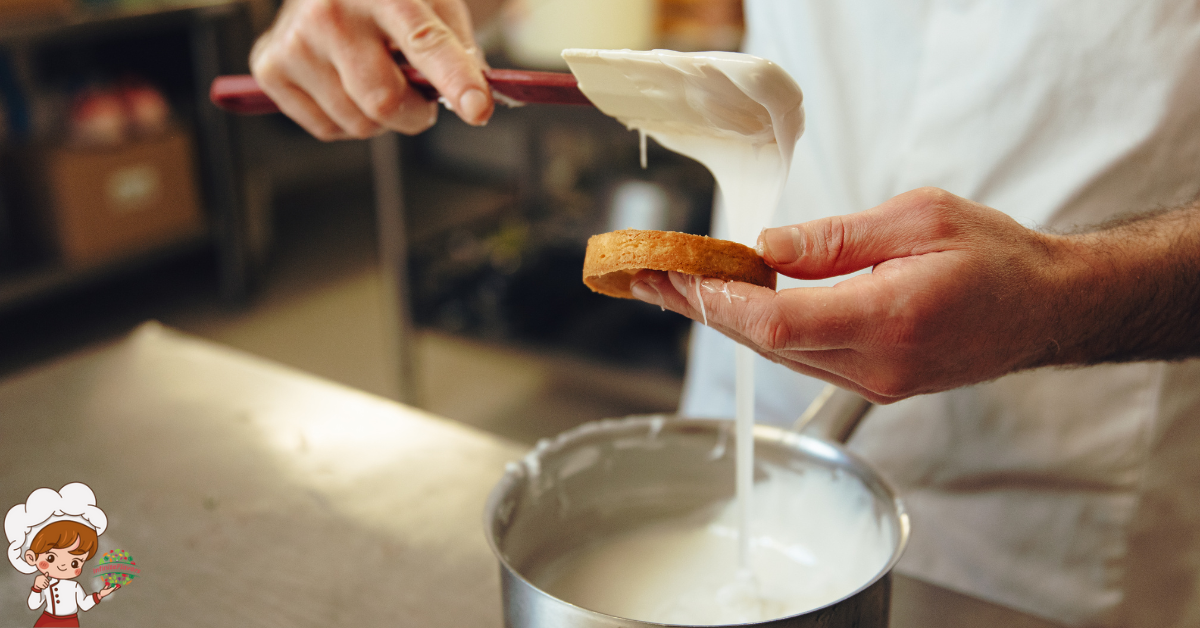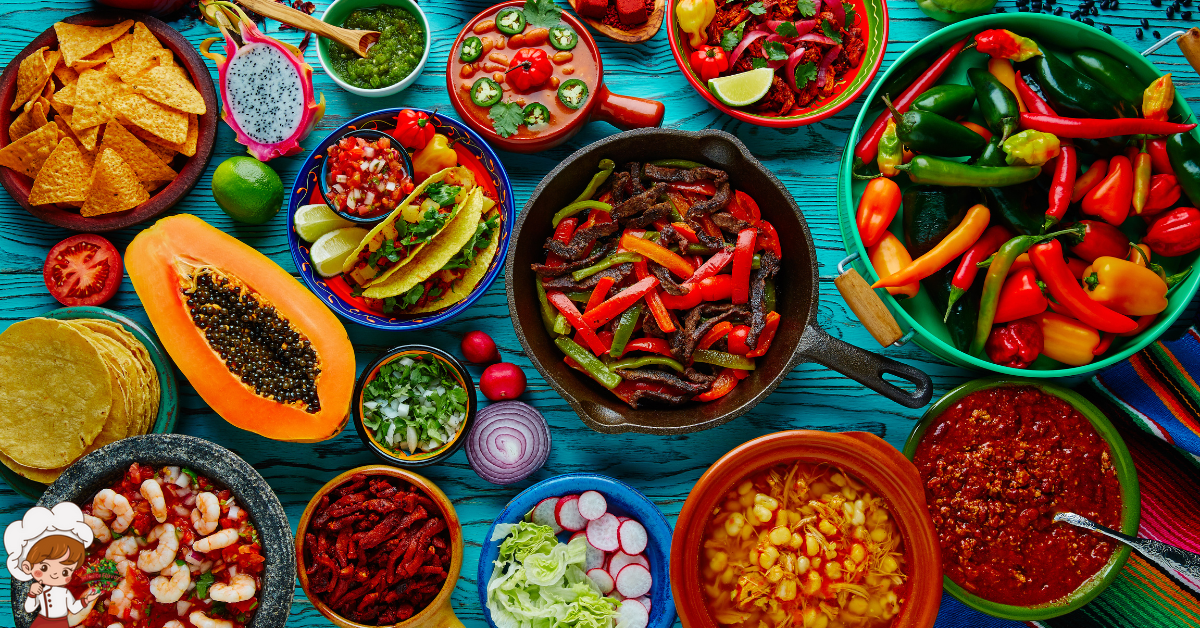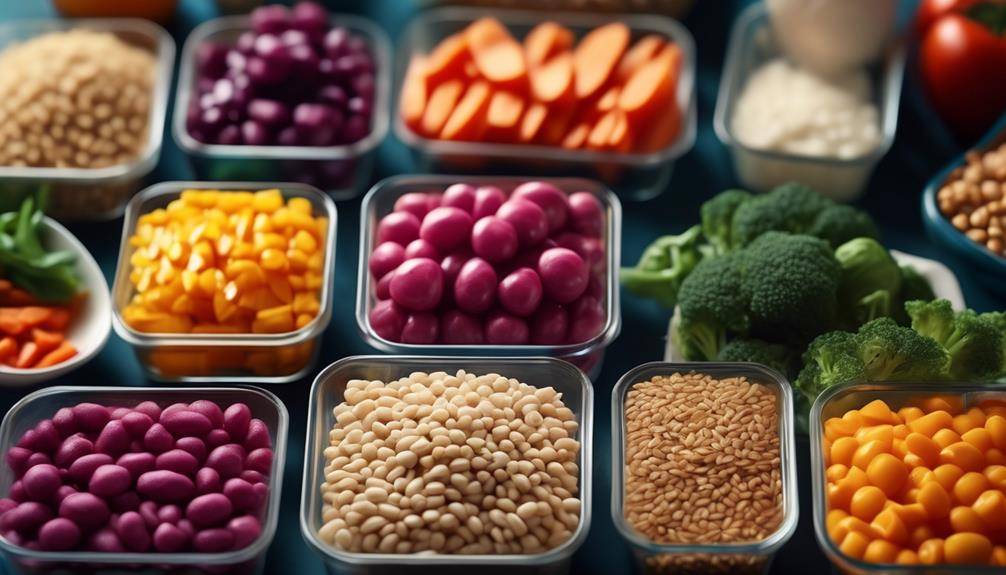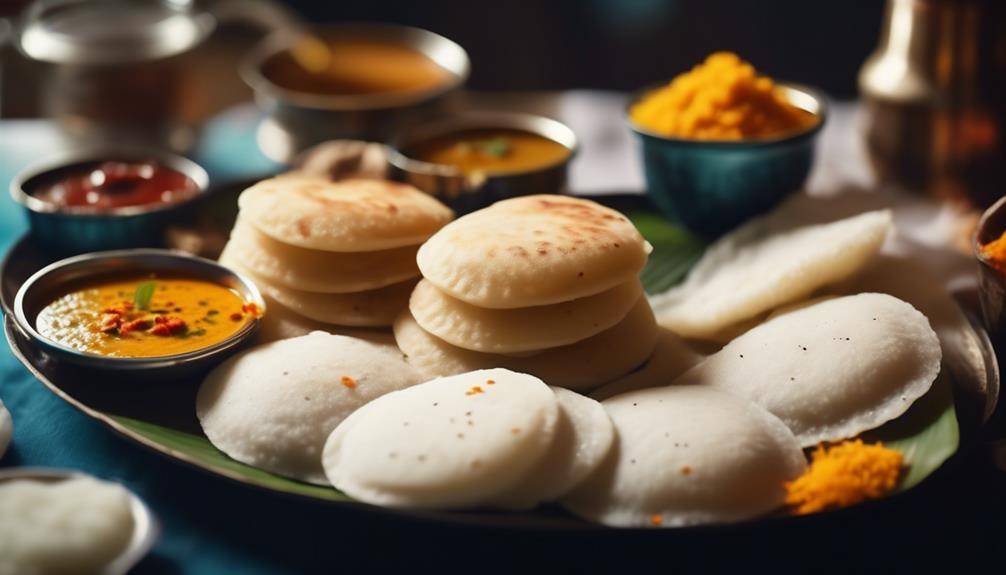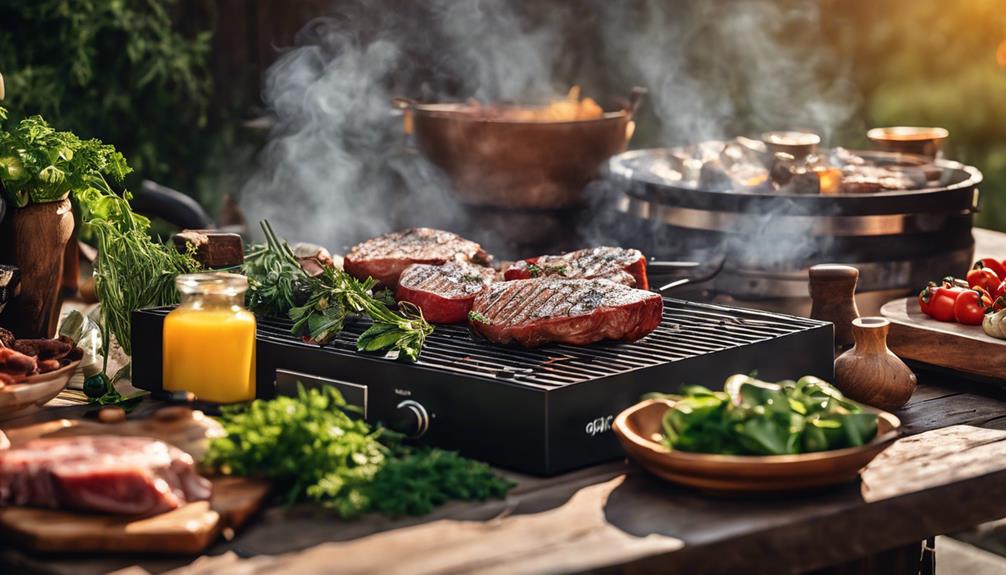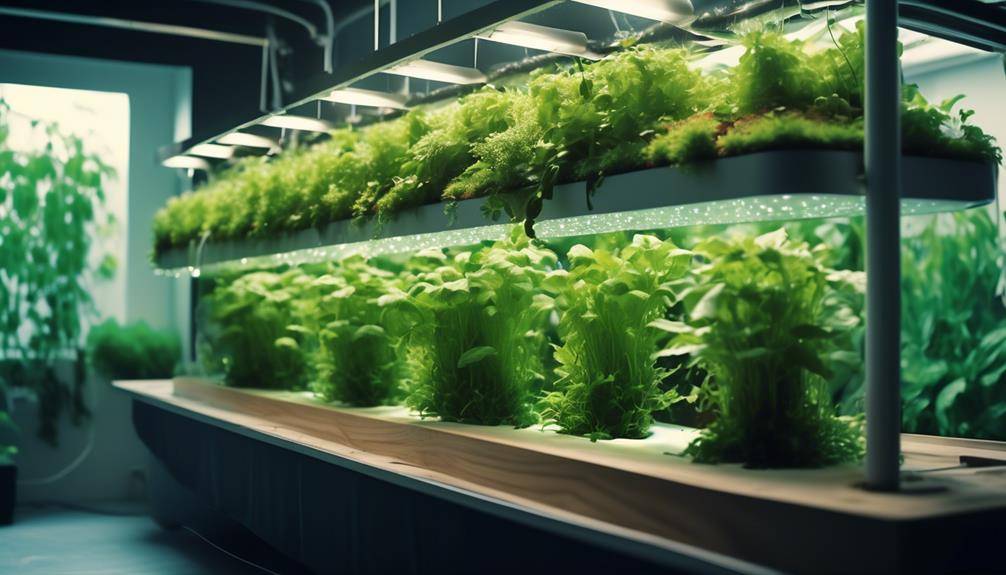The Best Grilling Safety Tips For Summer
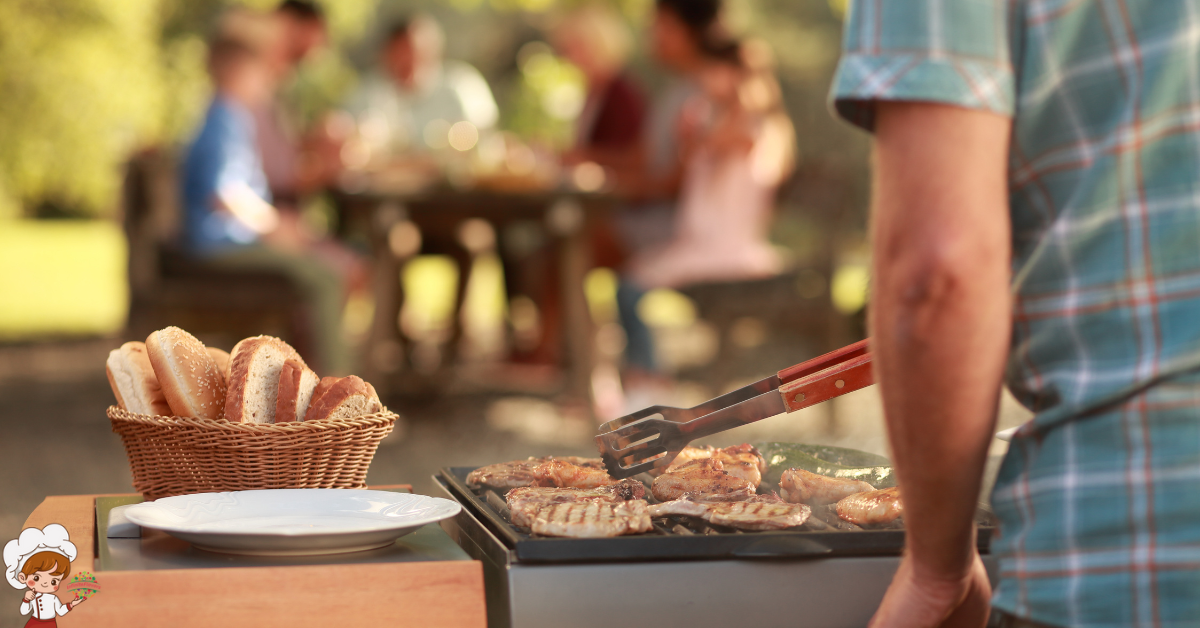
Grilling Safety Tips For Summer; Sizzle up your summer with savory steaks and succulent sausages, but don’t let grilling turn into a risky business. Before you fire up that grill, make sure you’re armed with the essential knowledge to keep you and your loved ones safe. From proper placement to handling gas cylinders, from fire safety measures to protecting children and pets, this discussion will equip you with invaluable grilling safety tips that will make your summer cookouts a sizzling success.
Grill Placement
When it comes to grilling, choosing the right placement for your grill is crucial for both safety and optimal cooking results. Outdoor cooking is a popular activity during the summer months, and proper grill placement is an important aspect of grill maintenance. By following some simple guidelines, you can ensure a safe and enjoyable grilling experience.
Firstly, it is essential to place your grill on a level surface. This will prevent any accidental tipping and ensure even cooking. Avoid placing your grill on an uneven or sloped area, as this can lead to hot spots and unevenly cooked food. Additionally, make sure the area around your grill is clear of any flammable materials such as dry leaves or wooden structures. Safety should always be a top priority when grilling.
Another important consideration is proximity to your house or other structures. It is recommended to keep your grill at least 10 feet away from any combustible materials. This includes your house, deck, and any overhanging trees or branches. This not only reduces the risk of fire but also prevents smoke and heat from entering your home.
Furthermore, consider the direction of the wind when placing your grill. Position it in a way that the wind blows smoke away from your seating area. This will ensure a more enjoyable outdoor cooking experience for you and your guests.
Proper Gas Cylinder Handling
When it comes to proper gas cylinder handling, there are two key points to keep in mind: gas cylinder storage and proper valve usage. Firstly, it is crucial to store gas cylinders in a well-ventilated area, away from direct sunlight and sources of heat. Secondly, always ensure that you are using the correct valve for your gas cylinder and that it is tightly closed when not in use. By following these guidelines, you can ensure the safe handling and storage of your gas cylinders during grilling season.
Gas Cylinder Storage
To ensure the safe storage and handling of gas cylinders, it is crucial to follow proper procedures and guidelines. When it comes to gas cylinder storage, there are important factors to consider. First, it is essential to store cylinders in a well-ventilated area away from direct sunlight and heat sources. This helps prevent the build-up of pressure inside the cylinder, reducing the risk of explosion.
Additionally, cylinders should be stored in an upright position, secured to prevent tipping or falling. It is also important to keep cylinders away from flammable materials and ignition sources. When transporting gas cylinders, always follow gas cylinder regulations, which typically include securing the cylinders with straps or chains to prevent movement. By adhering to these storage and transportation guidelines, you can ensure the safety of yourself and those around you.
Proper Valve Usage
Ensure proper gas cylinder handling by understanding and utilizing the correct valve usage techniques. Valve maintenance is crucial to prevent gas leakage, which can lead to hazardous situations. It is important to regularly inspect the valves for any signs of wear, such as cracks or corrosion. Make sure the valve is tightly closed when not in use to prevent any gas from escaping.
When opening the valve, do so slowly and steadily to avoid sudden pressure surges. If you detect any gas leakage, immediately shut off the valve and contact a professional for assistance. Remember to never use excessive force when manipulating the valve, as this can cause damage. By following these valve usage guidelines, you can ensure a safe and enjoyable grilling experience this summer.
Cleaning and Maintenance
Regular cleaning and maintenance of your grill is essential to ensure optimal performance and longevity. Neglecting proper grill maintenance and cleaning can lead to a buildup of grease and debris, which can compromise the safety and functionality of your grill. To keep your grill in top shape, it is important to follow a few key cleaning and maintenance practices.
First and foremost, always make sure to clean your grill thoroughly after each use. This includes removing any leftover food particles, grease, and ash. Use a grill brush to scrub the grates and remove any stuck-on residue. For a more thorough cleaning, you can also remove the grates and soak them in warm, soapy water before scrubbing them clean.
In addition to regular cleaning, it is important to perform periodic maintenance on your grill. This includes checking for any signs of wear and tear, such as rust or loose parts. Replace any worn-out or damaged components to ensure the safety and efficiency of your grill.
Another important aspect of grill maintenance is checking and cleaning the fuel lines and burners. Over time, these components can become clogged with grease or debris, which can affect the heat distribution and cause uneven cooking. Use a wire brush or a pipe cleaner to clean the burner ports and remove any blockages.
Lastly, don’t forget to clean the exterior of your grill. Use a mild detergent and a soft cloth to wipe down the surfaces, removing any dirt or grime. This not only keeps your grill looking clean and presentable but also helps prevent corrosion.
Use of Protective Gear
When it comes to grilling, using the right protective gear is essential for your safety. Make sure to always have a pair of heat-resistant gloves to protect your hands from burns and accidents. Additionally, wearing a sturdy apron and closed-toe shoes will provide added protection from any potential spills or hot embers.
Essential Grilling Gear
To ensure your safety while grilling, it is essential to equip yourself with the proper protective gear. When it comes to grilling, wearing the right gear can make all the difference. Start with a good pair of heat-resistant gloves to protect your hands from burns and accidental contact with hot surfaces. These gloves are designed to withstand high temperatures and provide a secure grip on grilling utensils.
Next, invest in a sturdy apron to shield your body from grease splatters and potential flare-ups. Look for aprons made of flame-resistant materials that offer full coverage and adjustable straps for a comfortable fit. Lastly, don’t forget to wear closed-toe shoes to protect your feet from hot coals or falling objects. By wearing the proper protective gear, you can enjoy a safe and worry-free grilling experience.
Safety Equipment Required
Equipping yourself with the proper protective gear is crucial for ensuring your safety while grilling. When it comes to grilling, there are potential risks involved, such as burns and fire hazards. Therefore, it is essential to have the right safety equipment on hand. First and foremost, make sure to always wear heat-resistant gloves when handling hot grills or utensils. These gloves will protect your hands from burns and allow you to handle the grill with ease.
Additionally, wearing an apron or a grilling jacket can provide further protection from heat and grease splatters. Lastly, don’t forget to use long-handled utensils to keep your hands away from the cooking temperatures. By following these safety precautions and using the appropriate protective gear, you can enjoy grilling without compromising your well-being.
Safe Ignition Practices
For a safe and successful grilling experience, it is crucial to follow proper ignition practices. Igniting your grill properly ensures that it starts up smoothly and that you have control over the temperature throughout the cooking process. To achieve this, it is important to pay attention to grill maintenance and temperature control.
Before you begin grilling, take the time to clean and maintain your grill. Start by removing any leftover ashes or debris from the previous use. Use a grill brush to scrape away any built-up grease or food particles on the grates. This not only improves the overall cleanliness of your grill but also helps prevent flare-ups that can lead to accidents.
Next, check the gas supply if you have a gas grill. Ensure that the propane tank is securely connected and that there are no leaks. You can do this by applying a soapy water solution to the connections and watching for any bubbles that indicate a leak. If you have a charcoal grill, make sure you have enough charcoal and that it is dry before lighting it.
When it comes to ignition, avoid using lighter fluid on charcoal grills. Instead, opt for a chimney starter or an electric starter. These methods are safer and more effective in getting your charcoal briquettes evenly lit without the risk of flare-ups. For gas grills, follow the manufacturer’s instructions to ignite the burners safely.
Once your grill is ignited, it is important to have proper temperature control. This can be achieved by adjusting the vents on a charcoal grill or the burners on a gas grill. By regulating the airflow or gas flow, you can increase or decrease the heat to cook your food to perfection.
Following these safe ignition practices ensures that you start your grilling session on the right foot. By maintaining your grill and having proper temperature control, you can enjoy a delicious and safe grilling experience all summer long.
Food Handling and Preparation
Now that your grill is ready and safely ignited, it’s time to focus on an equally important aspect of grilling: food handling and preparation. Proper food handling and preparation are crucial for ensuring the safety and enjoyment of your grilled meals. By following a few simple guidelines, you can prevent cross contamination and ensure safe food storage techniques.
To prevent cross contamination, it’s important to keep raw meats, poultry, and seafood separate from other foods. Use separate cutting boards and utensils for these raw items to avoid spreading harmful bacteria. After handling raw meats, make sure to wash your hands thoroughly with soap and water before touching other foods or surfaces.
Another essential aspect of safe food handling is proper storage techniques. When purchasing ingredients for your grilling session, be mindful of the expiration dates and choose fresh, high-quality products. To maintain the freshness and prevent spoilage, store perishable items like meats, dairy products, and salads in the refrigerator at temperatures below 40°F. Keep raw meats in sealed containers or plastic bags to prevent any leakage that could contaminate other foods.
When marinating meats, make sure to do it in the refrigerator, not on the counter. Marinating at room temperature can allow bacteria to multiply rapidly, leading to foodborne illnesses. It’s also important to discard any leftover marinade that has come into contact with raw meats, as it may contain harmful bacteria.
Fire Safety Measures
To ensure a safe grilling experience, it is essential to implement fire safety measures that will protect you, your guests, and your property. Fire prevention should be a top priority when it comes to grilling, as accidents can happen even to the most experienced grill masters. By following these fire safety tips, you can minimize the risk of a fire and ensure a worry-free grilling session.
First and foremost, always keep a fire extinguisher nearby. In case of an emergency, you should be prepared to extinguish any flames quickly. Make sure the fire extinguisher is in good working condition and easily accessible. Additionally, familiarize yourself with the instructions on how to use it properly.
Another important fire safety measure is to never leave your grill unattended. It only takes a moment for a fire to start and spread. Stay vigilant and keep an eye on the grill at all times. If you need to step away, even for a moment, designate someone to watch over the grill or turn it off until you return.
Furthermore, keep your grill in a safe location. Place it away from any flammable materials, such as overhanging branches or dry vegetation. A safe distance of at least ten feet should be maintained between the grill and your house or any other structures.
Lastly, always have an emergency plan in place. Make sure everyone knows what to do in case of a fire. Establish a meeting point outside your home and ensure that everyone knows how to call emergency services. Practicing these emergency procedures can make a significant difference in minimizing potential danger.
Child and Pet Safety
Ensure the safety of your children and pets during grilling sessions by implementing these essential tips. Child supervision is crucial to prevent accidents and injuries. Always keep a close eye on your children when grilling, as they may be curious and unaware of the potential dangers. Assign a responsible adult to be in charge of supervising the children, ensuring they stay at a safe distance from the grill and any hot surfaces. Teach them about the dangers of open flames and hot surfaces, emphasizing the importance of staying away.
When it comes to pets, it’s important to exercise pet restraint during grilling sessions. Pets can also be curious and may try to approach the grill, potentially getting burned or causing a fire hazard. Keep your pets indoors or in a safe, enclosed area away from the grill while cooking. If they must be outside, make sure they are on a leash or in a securely fenced-in area, far from the grilling area. This will prevent them from getting too close to the grill and potentially knocking it over or getting burned.
Additionally, be mindful of any potential hazards that may attract children or pets near the grill. Keep all grilling utensils, propane tanks, and lighter fluid out of reach. Store them in a secure location, preferably locked away, to prevent accidental access. Always remember to extinguish the grill completely once you’re done cooking, ensuring there are no hot embers or coals that could pose a danger to children or pets.
Proper Grill Shutdown
As you wrap up your grilling session and prioritize the safety of your loved ones, it is essential to understand the importance of properly shutting down your grill. A proper grill shutdown not only ensures the longevity of your grill but also reduces the risk of accidents and fire hazards. To achieve this, you need to focus on two main aspects: grill maintenance and grill cleaning.
First and foremost, grill maintenance plays a crucial role in the shutdown process. Before turning off the grill, take a few moments to inspect the burners, gas lines, and ignition system. Check for any signs of damage or wear and tear. If you notice any issues, it is best to address them promptly to prevent further damage and potential safety risks. Additionally, make sure to clean out any debris or ash that may have accumulated during your grilling session. This helps prevent clogs and ensures proper airflow, which is vital for safe grilling.
Once you have completed the maintenance tasks, it is time to focus on grill cleaning. Start by turning off the burners and closing the gas valve. This step is crucial to prevent any accidental gas leaks. Next, give the grates a thorough scrub using a grill brush, removing any leftover food particles or grease. Be sure to clean the exterior of the grill as well, wiping it down with a mild detergent and warm water. Lastly, empty the grease trap and dispose of the grease properly.
Grilling Safety Tips For Summer; Frequently Asked Questions
How Often Should I Clean My Grill?
You should clean your grill regularly to ensure optimal performance and safety. Grill maintenance is essential, and the frequency of cleaning depends on how often you use it. A good rule of thumb is to clean it thoroughly after every few uses.
Can I Use My Grill on a Balcony or in an Enclosed Space?
Yes, you can use your grill on a balcony or in an enclosed space, but it is crucial to prioritize safety. Follow these Grilling Safety Tips For Summer to prevent accidents and ensure a enjoyable grilling experience.
What Types of Protective Gear Should I Wear While Grilling?
To ensure your safety while grilling, it is important to wear the right protective gear. This includes heat-resistant gloves, goggles, and an apron. Also, don’t forget the fire extinguisher, especially when grilling in extreme weather conditions.
Is It Safe to Leave the Grill Unattended While Cooking?
It’s important to prioritize grill maintenance and fire safety when grilling. However, it is never safe to leave the grill unattended while cooking. Always stay vigilant and keep an eye on the grill to prevent accidents.
How Do I Properly Dispose of the Ashes From My Charcoal Grill?
To properly dispose of the ashes from your charcoal grill, wait until they are completely cool and then transfer them into a metal container. Avoid disposing of them in plastic bags or near flammable materials.
Conclusion
In conclusion, following these grilling safety tips will ensure a summer filled with delicious meals and worry-free gatherings. By placing your grill in a safe location, handling gas cylinders properly, and regularly cleaning and maintaining your grill, you can minimize the risk of accidents. Wearing protective gear, practicing safe ignition techniques, and handling food with care are also essential. Additionally, taking fire safety measures, protecting children and pets, and properly shutting down the grill after use will further enhance your grilling experience. Stay safe and enjoy the flavors of summer!



